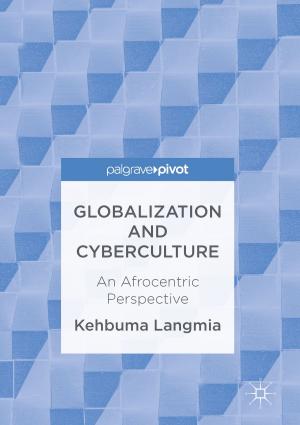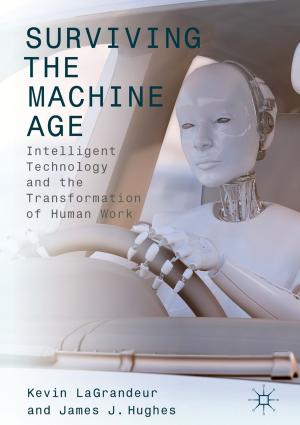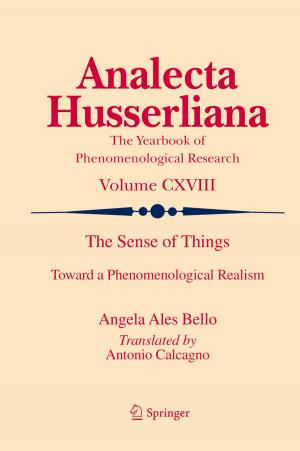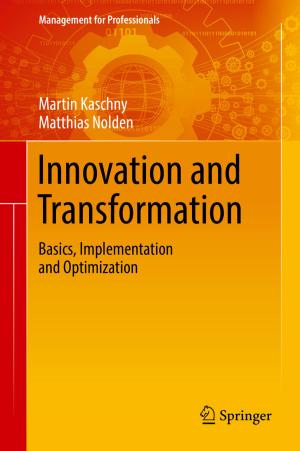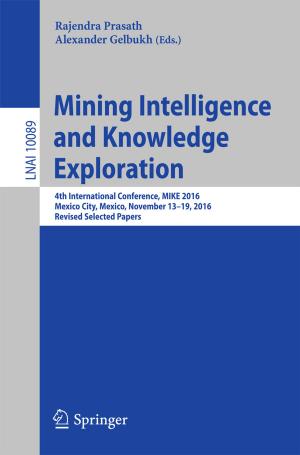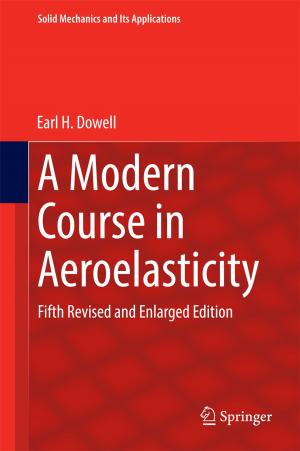History, Philosophy and Science Teaching
New Perspectives
Nonfiction, Science & Nature, Science, Other Sciences, Study & Teaching, Philosophy & Social Aspects, Reference & Language, Education & Teaching| Author: | ISBN: | 9783319626161 | |
| Publisher: | Springer International Publishing | Publication: | August 30, 2017 |
| Imprint: | Springer | Language: | English |
| Author: | |
| ISBN: | 9783319626161 |
| Publisher: | Springer International Publishing |
| Publication: | August 30, 2017 |
| Imprint: | Springer |
| Language: | English |
This anthology opens new perspectives in the domain of history, philosophy, and science teaching research. Its four sections are: first, science, culture and education; second, the teaching and learning of science; third, curriculum development and justification; and fourth, indoctrination.
The first group of essays deal with the neglected topic of science education and the Enlightenment tradition. These essays show that many core commitments of modern science education have their roots in this tradition, and consequently all can benefit from a more informed awareness of its strengths and weaknesses. Other essays address research on leaning and teaching from the perspectives of social epistemology and educational psychology. Included here is the first ever English translation of Ernst Mach’s most influential 1890 paper on ‘The Psychological and Logical Moment in Natural Science Teaching’. This paper launched the influential Machian tradition in education.
Other essays address concrete cases of the utilisation of history and philosophy in the development and justification of school science curricula. These are instances of the supportive relation of HPS&ST research to curriculum theorising. Finally, two essays address the topic of Indoctrination in science education; a subject long-discussed in philosophy of education, but inadequately in science education.
This book is a timely reminder of why history and philosophy of science are urgently needed to support understanding of science. From major traditions such as the Enlightenment to the tensions around cultural studies of science, the book provides a comprehensive context for the scientific endeavour, drawing on curriculum and instructional examples.
Sibel Erduran, University of Oxford, UK
The scholarship that each of the authors in this volume offers deepens our understanding of what we teach in science and why that understanding matters. This is an important book exploring a wide set of issues and should be read by anyone with an interest in science or science education.
Jonathan Osborne, Stanford University, USA
This volume presents new and updated perspectives in the field, such as the Enlightenment Tradition, Cultural Studies, Indoctrination in Science Education, and Nature of Science. Highly recommended.
Mansoor Niaz, Universidad de Oriente, Venezuela
This volume provides an extremely valuable set of insights into educational issues related to the history and philosophy of science.
Michael J Reiss, University College London, UK
This anthology opens new perspectives in the domain of history, philosophy, and science teaching research. Its four sections are: first, science, culture and education; second, the teaching and learning of science; third, curriculum development and justification; and fourth, indoctrination.
The first group of essays deal with the neglected topic of science education and the Enlightenment tradition. These essays show that many core commitments of modern science education have their roots in this tradition, and consequently all can benefit from a more informed awareness of its strengths and weaknesses. Other essays address research on leaning and teaching from the perspectives of social epistemology and educational psychology. Included here is the first ever English translation of Ernst Mach’s most influential 1890 paper on ‘The Psychological and Logical Moment in Natural Science Teaching’. This paper launched the influential Machian tradition in education.
Other essays address concrete cases of the utilisation of history and philosophy in the development and justification of school science curricula. These are instances of the supportive relation of HPS&ST research to curriculum theorising. Finally, two essays address the topic of Indoctrination in science education; a subject long-discussed in philosophy of education, but inadequately in science education.
This book is a timely reminder of why history and philosophy of science are urgently needed to support understanding of science. From major traditions such as the Enlightenment to the tensions around cultural studies of science, the book provides a comprehensive context for the scientific endeavour, drawing on curriculum and instructional examples.
Sibel Erduran, University of Oxford, UK
The scholarship that each of the authors in this volume offers deepens our understanding of what we teach in science and why that understanding matters. This is an important book exploring a wide set of issues and should be read by anyone with an interest in science or science education.
Jonathan Osborne, Stanford University, USA
This volume presents new and updated perspectives in the field, such as the Enlightenment Tradition, Cultural Studies, Indoctrination in Science Education, and Nature of Science. Highly recommended.
Mansoor Niaz, Universidad de Oriente, Venezuela
This volume provides an extremely valuable set of insights into educational issues related to the history and philosophy of science.
Michael J Reiss, University College London, UK








